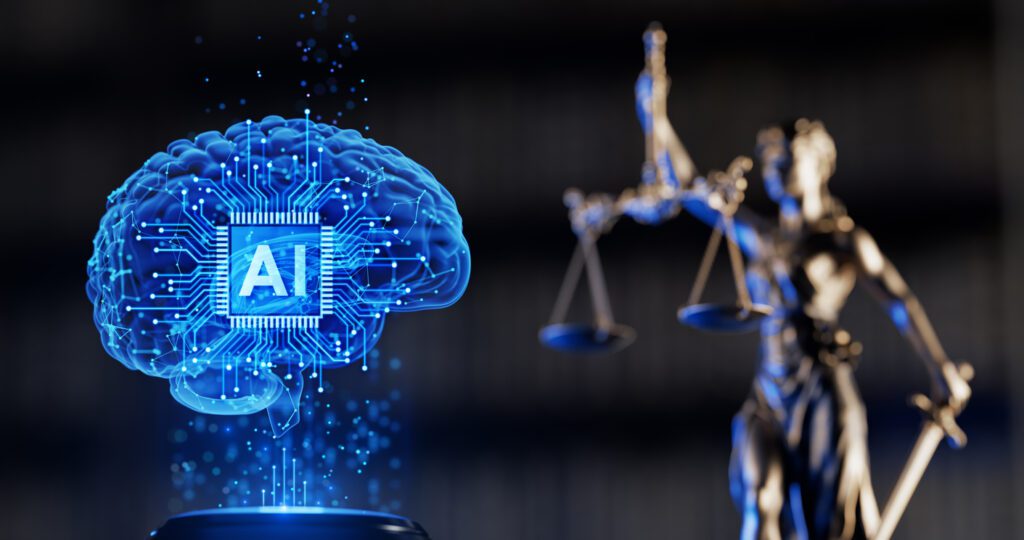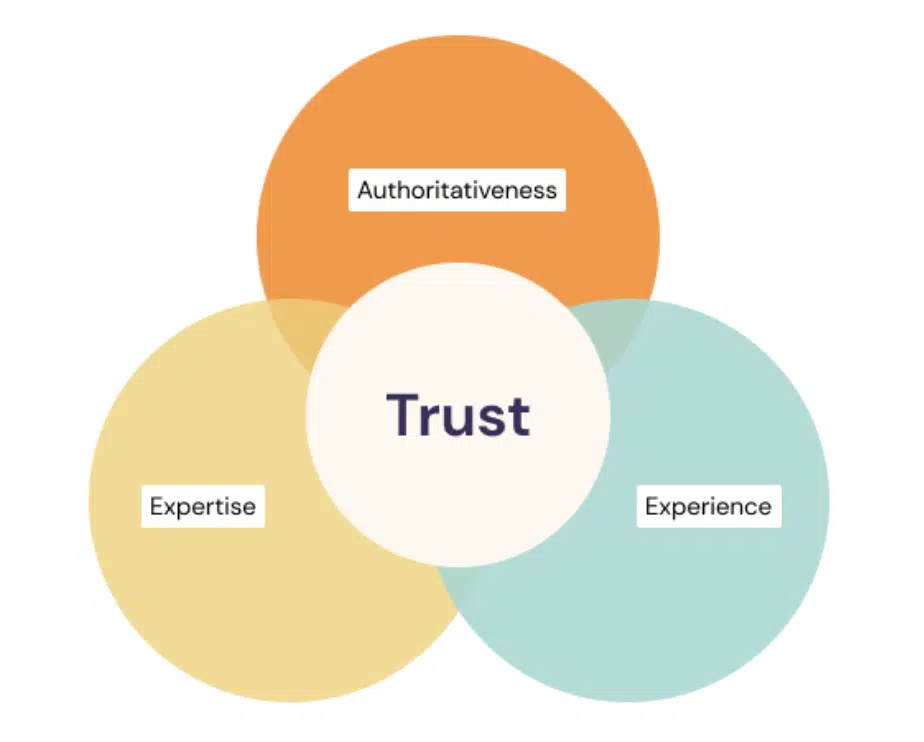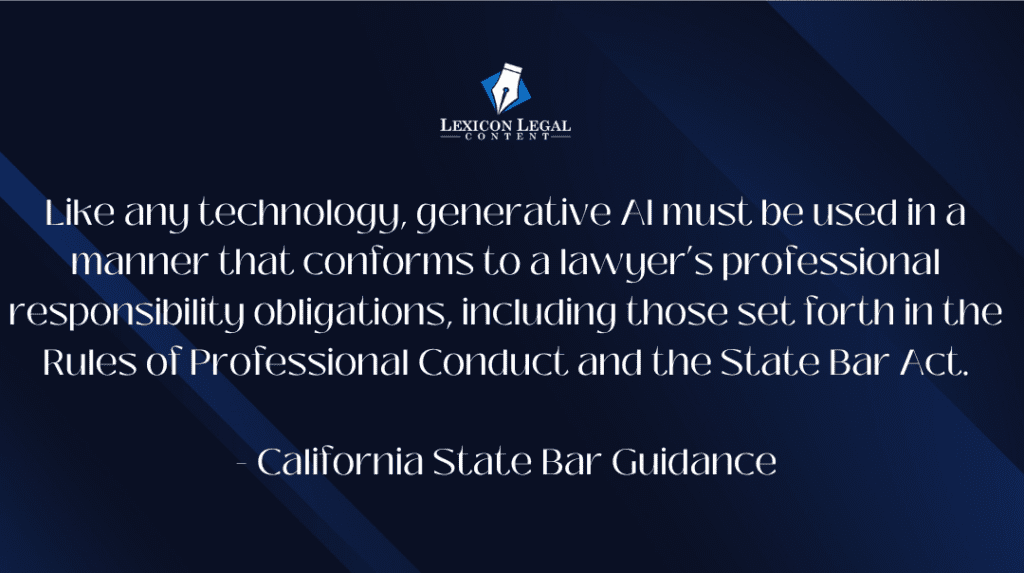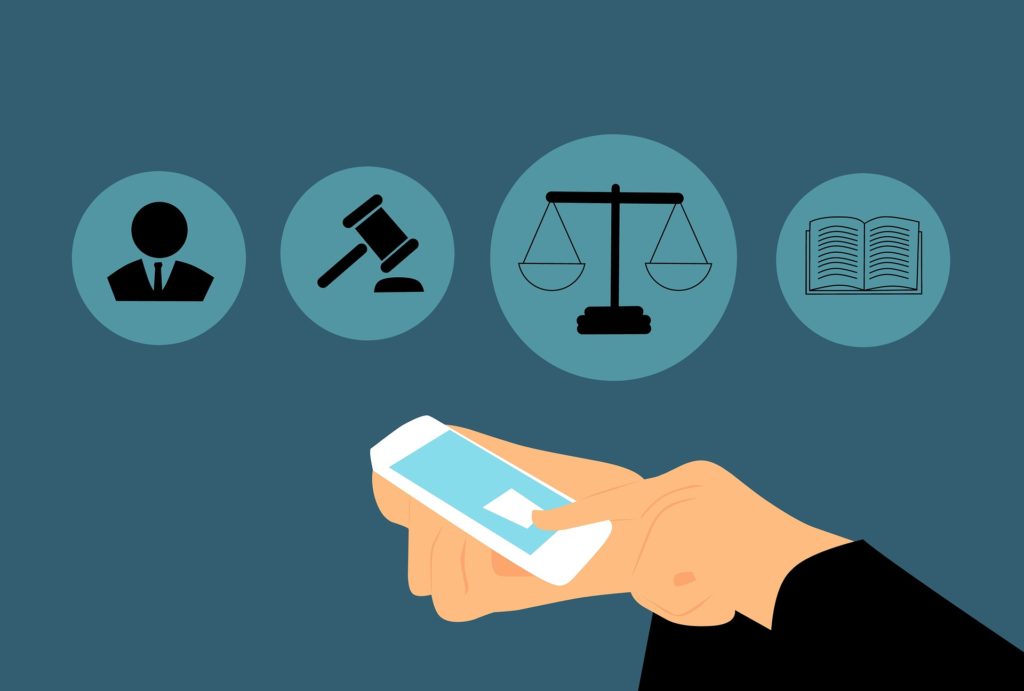While lawyers and law firms have historically been cautious and slow to adopt new technologies, artificial intelligence (AI) is starting to transform legal practices. The reality is that AI is allowing lawyers to automate tasks, save costs, and deliver higher-quality services to clients.
AI technology is now in use across various areas of legal work, from document management to predictive analytics, creating efficiencies that allow lawyers to focus on on higher-level strategy. To keep up in this competitive industry, attorneys and law firms should explore how to integrate AI solutions effectively into their workflows while maintaining compliance with their ethical duties.
How You Can Use AI in Your Legal Practice
Generative AI for Document Drafting and Analysis

Legal document creation and management has evolved dramatically with new digital tools. Today’s software helps lawyers:
- Draft contracts and briefs with standard clauses
- Extract key points from lengthy documents
- Search past cases efficiently
- Analyze patterns across similar litigation
- Respond quickly to routine client questions
- Organize case materials systematically
These advances streamline routine tasks, giving attorneys more time to focus on complex legal analysis and client strategy. Modern document management systems can search thousands of pages in minutes, identify relevant precedents, and help maintain consistent language across similar documents.
E-Discovery
E-discovery is one of the most widely used forms of AI in law. It allows attorneys to forgo the time-consuming job of sifting through digital documents to find relevant information.
E-discovery software enables attorneys to search through vast databases of documents using keywords, dates, and other filters. As such, they can locate non-privileged information quickly and accurately, making case preparation more efficient. AI eliminates the need for extensive manual review of digital data, allowing attorneys to uncover critical information almost instantly.
Legal Research
AI-powered research tools streamline the search process by scanning databases that include statutes, case law, regulations, and other legal resources. These tools help legal professionals quickly gather relevant information, making it easier to understand legal precedents and apply them to current cases.
AI-enhanced legal research software can analyze vast databases and identify cases that might have otherwise been missed, reducing the risk of oversight. Integrating research tools with practice management software, such as Casetext or Westlaw Edge, also improves efficiency by allowing legal research findings to be directly linked to case records.
Document Management and Automation
Managing documents in a law firm is inherently critical but can be challenging and onerous. AI-powered document management systems allow lawyers to organize, store, and retrieve digital files quickly and efficiently. Tagging and profiling features help to categorize files based on criteria such as case type, date, or client, making it easier to locate relevant documents when needed.
Document automation also saves time when producing legal documents. Law firms can create document templates that automatically pull in data from case files, generating letters, contracts, or invoices with minimal manual effort. Document management software often includes version control and security features, ensuring compliance and maintaining confidentiality.
Due Diligence
Due diligence is essential in legal transactions, often requiring lawyers to review extensive documentation to assess risks. AI enhances due diligence by identifying documents that contain specific clauses or language. For instance, if a lawyer needs to review contracts for a particular clause, AI can locate relevant documents within seconds, significantly reducing the time required for document review.
AI-based tools also detect variations or changes across documents, alerting lawyers to potential inconsistencies. While human review is still necessary to verify findings, AI helps streamline the initial analysis phase of due diligence, improving accuracy and reducing the likelihood of missing critical information.
Litigation Analysis and Predictive Analytics

AI assists in evaluating past cases to inform legal strategies and predict potential outcomes by examining historical case data to identify trends and patterns. Predictive analysis enables attorneys to make better-informed decisions, helping them prepare more robust cases based on the likely behaviors of opposing parties or judges.
AI-powered analytics can provide insights into case viability, the potential value of claims, and the resolution of similar cases, enabling lawyers to develop realistic expectations and strategic approaches. AI supports a proactive approach, allowing attorneys to adjust their strategies to maximize client outcomes.
How to Implement AI in Your Law Firm
Successfully integrating AI into your law practice requires thoughtful planning and strategic decision-making. Here are some critical steps to ensure a smooth and effective transition to AI:
- Assess Your Firm’s Needs – Begin by evaluating which tasks could benefit most from automation, such as research, document management, client intake, or e-discovery. Identify repetitive, time-intensive tasks that are often delegated to junior staff or paralegals. By pinpointing where AI can alleviate workload, you can target tools that make a meaningful difference in your firm’s operations.
- Research AI Solutions – Once you’ve identified your needs, explore reputable AI tools with a proven track record in the legal industry. Consider platforms that specialize in the specific functions you’re looking to automate, whether it’s legal research, contract review, or client communication. Many AI providers offer demo sessions or trial periods, allowing you to assess the tool’s effectiveness and compatibility with your firm’s workflow before committing.
- Invest in Training – To maximize the benefits of AI, it’s essential to provide thorough training for your team. Hold workshops or provide access to vendor resources to help staff learn best practices, maximize efficiency, and understand the technology’s limitations. Training your team to use AI tools effectively can make a substantial difference in productivity and team morale as they adapt to new workflows.
- Monitor and Evaluate – Implementing AI is not a one-time task but a continuous process. Regularly evaluate how AI impacts your workflows, productivity, and client service. If applicable, collect feedback from your team and clients to assess areas for improvement. Monitoring AI’s performance will allow you to make necessary adjustments and evaluate the return on investment.
When Adopting AI, Be Sure to Maintain Ethical Standards
Adopting new technology in legal practice requires careful attention to professional ethics and client privacy. As your firm modernizes its systems and processes, keep these key principles in mind:
- Maintain strict client confidentiality at all times
- Follow industry security protocols rigorously
- Keep detailed records of data handling
- Be transparent with clients about technology use
- Review and update privacy practices regularly
- Stay current on professional guidelines
By prioritizing these fundamentals while upgrading your practice’s technology, you’ll strengthen client trust and protect your firm’s reputation. Smart implementation of new tools can improve your services while upholding the highest standards of legal ethics.
Adopting AI to Build a Future-Ready Law Firm
Legal technology is transforming how law firms serve their clients. By handling time-consuming tasks like document review and basic research, new tools free up attorneys to focus on what matters most – providing strategic counsel and solving complex legal challenges.
While adopting new systems requires an upfront investment of time and resources, firms that embrace these advances can work more efficiently, respond faster to client needs, and stay ahead in a competitive market. From streamlining case research to organizing vast document collections, the right technology can help your practice deliver better results for clients while reducing administrative burdens on your team.



